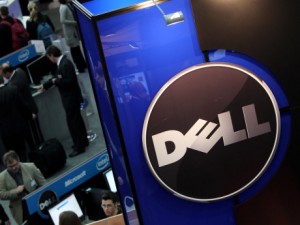 Following news that Dell was in negotiations for a private equity buyout, analysts said on Tuesday that multiple private equity firms would have to invest in Dell for a buyout to be possible. The analysts pointed toward the company’s high market capitalisation and its recent struggles to transition from a commodity PC supplier to an enterprise IT vendor as the main hurdles.
Following news that Dell was in negotiations for a private equity buyout, analysts said on Tuesday that multiple private equity firms would have to invest in Dell for a buyout to be possible. The analysts pointed toward the company’s high market capitalisation and its recent struggles to transition from a commodity PC supplier to an enterprise IT vendor as the main hurdles.
Bloomberg reported Monday that Dell was in negotiations for a private equity buyout, which was later confirmed by The Wall Street Journal.
Dell spokesman David Frink said the company does not comment on rumors or speculation. The company’s share price rose on Monday after the reports surfaced and that trend continued into early Tuesday afternoon.
A buyout could help Dell focus on long-term goals by removing the company from the pressure of Wall Street to perform well financially. But questions remain around the company’s long-term viability because of its recent financial struggles, executive departures and structural viability with a heavy reliance on the low-margin PC business, analysts said.
Placing Dell’s market capitalisation at around $21 billion, Sterne Agee financial analyst Shaw Wu on late Monday said that a private equity buyout is not likely, as it would require “sizable financing” involving multiple private equity firms to meet the buying price, Wu said. He also questioned the stability of Dell’s structure and business.
But other analysts put more credence in the reports.
A buyout by private equity firms could be valid as the company is transitioning from a supplier of commodity hardware, mainly traditional personal computing, to being a supplier of enterprise-grade IT infrastructure, said Carter Lusher, chief IT analyst at Ovum.
“Dell’s ambition is nothing less than offering the entire IT stack with supporting services. While this transition has been going on for several years, there is still much that has to be done,” Luster said.
If the reports are true, Dell is trying to make the transition from a public to a private company with the need to meet quarterly earnings expectations hanging over its head. But investors are myopic and only care about next quarter’s earnings per share, Luster said. Dell reports its next quarterly earnings on February 19.
“Going private in order to make the major changes needed to remake the company makes strategic sense. However, going private is not a panacea as there is a heavy cost associated with that change of ownership structure. If Dell does not have the right private equity partners it could find itself in a worse situation than being a public company,” Lusher said.
In recent years, Dell has been restructuring its business to move away from low-margin PC products and into the enterprise business to increase profitability. The company has reduced its lineup of low-priced PCs and increased its high-priced offerings in an effort to improve margins in the competitive PC market. The company has also been on an acquisition spree with the goal of offering a complementary stack of services, software, networking, storage and server products.
Private equity firms may have different visions for Dell’s future and it may be difficult for investors to agree on a common business plan, which could be a thorn in Dell’s plans for a private buyout, said Ezra Gottheil, senior analyst at Technology Business Research.
“They have to appeal to their new owners,” Gottheil said. “It allows the company to have a long-term plan.”
Dell is a mature company operating on a quarterly basis, and, much like Hewlett-Packard, is being undervalued due to the low-margin PC business, Gottheil said. A private buyout could allow the company to set a long-term stable business plan without worrying about margins on a quarter-to-quarter basis.
The PC business is attractive to customers, but it remains an under-appreciated revenue generator that contributes to Dell’s positive cash flow, analysts said. However, Wall Street does not preach patience, and a private buyout would take away the distraction of the company’s share price and the need to answer to investors, media and financial analysts, allowing Dell to focus on long-term goals.
“It fits very well with Michael Dell’s philosophy. He has long counselled Wall Street to be patient with the transition he has tried to achieve,” said Roger Kay, President, Endpoint Technologies Associates.
Dell has had its issues recently with unstable financial performance and departures of key executives like Dave Johnson, a senior vice president of corporate strategy who was a top executive responsible for establishing Dell’s long-term goals. But Kay said that the company needs five more years to complete the transition and establish a stable business, and that a private equity buyout right now makes sense, as Dell will find investors and also retain talent to achieve those goals.
“The timing is good, the assets are valuable,” Kay said. “Now is the time. I’m not surprised at all they are doing it.”





